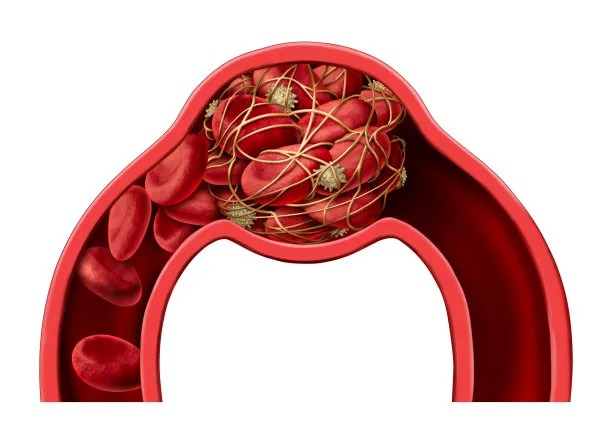Advancements in Global Cardiovascular Disease Treatment Approaches
original:health91192025-02-19 11:52:45
Summary: In recent years, advancements in global cardiovascular disease treatment approaches have brought about significant progress in the field of cardiovascular medicine. This article explores th
Summary: In recent years, advancements in global cardiovascular disease treatment approaches have brought about significant progress in the field of cardiovascular medicine. This article explores the current landscape of cardiovascular disease treatment, highlighting key innovations and breakthroughs that are shaping the future of patient care.
1. Innovative Therapies

One of the most exciting developments in cardiovascular disease treatment is the emergence of innovative therapies that target specific molecular pathways involved in disease progression. These therapies, such as gene editing techniques and personalized medicine approaches, offer new hope for patients with previously untreatable conditions.
Furthermore, the use of advanced technologies like artificial intelligence and big data analytics has revolutionized the way cardiovascular diseases are diagnosed and managed. By leveraging these tools, healthcare providers can make more accurate treatment decisions and tailor interventions to individual patient needs.
Alongside traditional medications and surgical interventions, novel therapies like stem cell transplantation and tissue engineering have shown promising results in repairing damaged heart tissues and restoring cardiac function. These regenerative medicine approaches hold great potential for improving outcomes in patients with severe cardiovascular conditions.
2. Precision Medicine
Precision medicine has emerged as a game-changer in the treatment of cardiovascular diseases, allowing healthcare providers to customize treatment plans based on a patients unique genetic makeup, lifestyle factors, and environmental influences. By utilizing genetic testing and biomarker analysis, clinicians can identify individuals at high risk for heart disease and tailor interventions to prevent future complications.
Furthermore, the concept of precision medicine extends beyond pharmacological interventions to include lifestyle modifications and behavioral therapies that play a crucial role in managing cardiovascular risk factors. By integrating these personalized approaches into patient care, healthcare providers can optimize treatment outcomes and improve long-term prognosis.
The growing emphasis on precision medicine in cardiovascular care reflects a shift towards proactive and individualized healthcare delivery, prioritizing preventive strategies and early intervention to mitigate the burden of cardiovascular disease on populations worldwide.
3. Minimally Invasive Procedures
Advancements in minimally invasive procedures have revolutionized the field of interventional cardiology, offering patients with cardiovascular disease less invasive treatment options and faster recovery times. Techniques such as transcatheter aortic valve replacement (TAVR) and percutaneous coronary intervention (PCI) have become standard practice for treating a wide range of cardiovascular conditions.
These minimally invasive approaches not only reduce the risk of complications associated with traditional open-heart surgery but also improve patient comfort and overall quality of life. With ongoing advancements in device technology and procedural techniques, the scope of minimally invasive interventions continues to expand, providing new treatment options for patients who are not candidates for surgery.
By combining the benefits of minimally invasive procedures with state-of-the-art imaging modalities and navigational tools, interventional cardiologists can achieve precise delivery of therapy and optimal outcomes for patients with complex cardiovascular conditions.
4. Patient-Centered Care
The shift towards patient-centered care in cardiovascular medicine has placed a greater emphasis on promoting shared decision-making, fostering open communication, and addressing the holistic needs of patients beyond their medical conditions. Through collaborative care models that involve patients as active participants in their treatment plans, healthcare providers can enhance treatment adherence and improve patient satisfaction.
Furthermore, the integration of digital health solutions, telemedicine platforms, and remote monitoring technologies has empowered patients to take control of their cardiovascular health and stay connected with their care team from anywhere. These innovations promote continuous engagement, real-time data monitoring, and seamless communication, leading to better outcomes and reduced healthcare disparities.
By prioritizing patient preferences, cultural beliefs, and socioeconomic factors in the delivery of cardiovascular care, healthcare providers can ensure that treatment strategies are effective, accessible, and tailored to meet the diverse needs of a global patient population.

Summary:
Advancements in global cardiovascular disease treatment approaches have ushered in a new era of personalized, precision medicine that is transforming the way cardiovascular conditions are diagnosed, managed, and treated worldwide. From innovative therapies and precision medicine to minimally invasive procedures and patient-centered care, these advancements are driving improvements in patient outcomes, quality of life, and overall cardiovascular health. Embracing these cutting-edge approaches and technologies is essential for shaping the future of cardiovascular medicine and ensuring better health outcomes for individuals at risk of or living with cardiovascular disease.
This article is published by HEALTH9119 Medical Health Network https://www.health9199.com arrangement